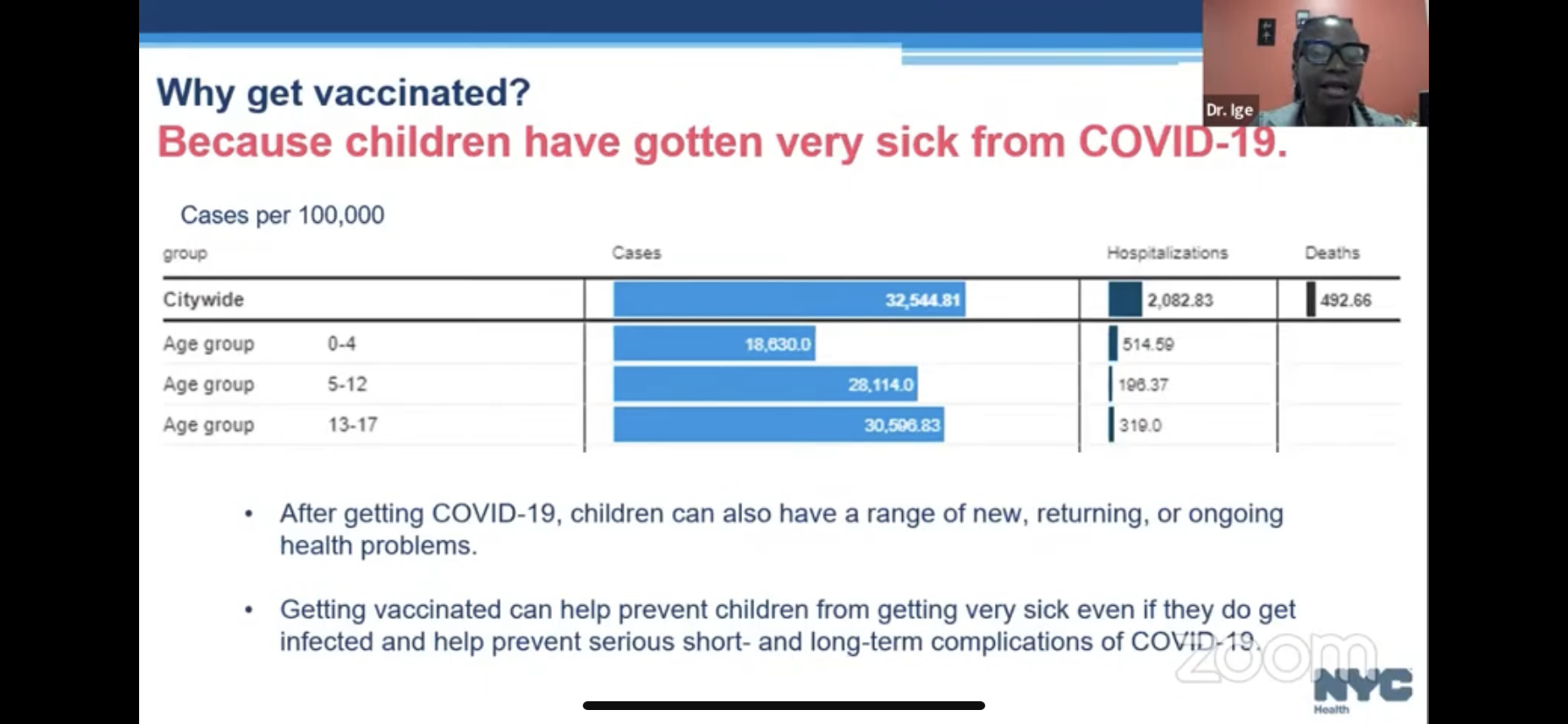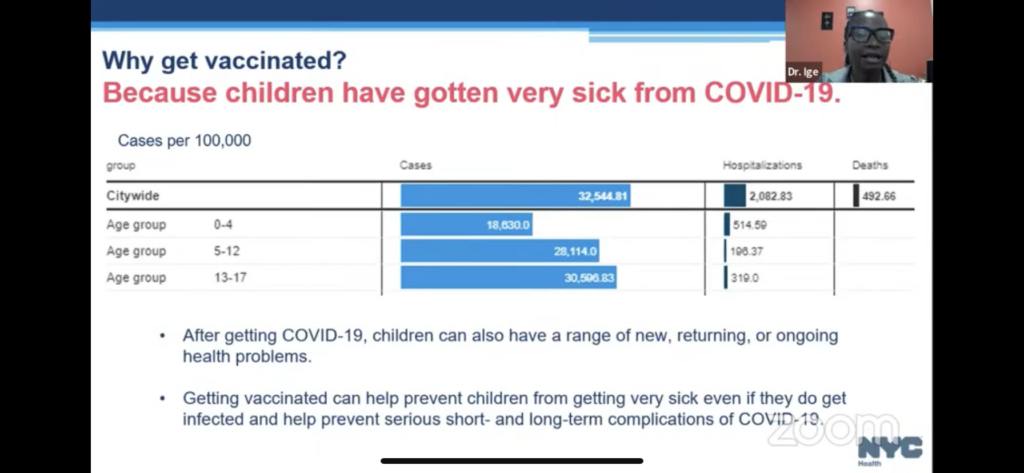By Jessica Meditz
jmeditz@queensledger.com

As summer begins to fizzle out and school is in sight, many parents are on the fence about how to best protect their child against COVID-19.
The hesitancy is shown in the vaccination rates for Queens.
Although over 2.1 million Queens residents have received at least one dose of a COVID-19 vaccine, the New York State Department of Health revealed that as of July 25, just 2.5 percent of residents under age five have received at least one vaccine shot.
To inform the community and advocate for them to get their children vaccinated, Queens Borough President Donovan Richards held a virtual informational session, which was co-sponsored by City Council Committee on Health Chair and District 29 Councilwoman Lynn Schulman, and City Council Committee on General Welfare Chair and District 8 Councilwoman Diana Ayala.
The CDC recommended the Pfizer and Moderna COVID vaccines for kids ages six months and older in June, and various agencies continue to emphasize the safe and effective nature of vaccines.
“It is so important to reiterate what the DOH has been saying. The vaccine is safe, effective, and comes at no cost to New Yorkers,” Richards said.
“With new variants emerging, it is important to get our children vaccinated before school begins in September. We have come so far since the pandemic began, but we must continue to be diligent,” he continued. “I realize there may be some hesitancy if the vaccines are safe for our children. We must come together as a community and not be afraid of what we need to do to get our community back to full strength.”
Richards reassured Queens residents that his office has and will continue to be a resource for those who need assistance in finding an appointment, and that pop up events for kids under five will be held in the coming weeks.
Schulman echoed his sentiment, sharing that a friend of hers recently experienced treating their infant for COVID, which was a painful experience.
“Kids under 5 are just developing their immune systems, so it’s so important to get vaccinated,” Schulman said.
“We have the science now to show that vaccination is key to making sure that we don’t get sick, that we don’t go to the hospital and more importantly that people don’t die,” she continued. “Kids seem to get affected more so with COVID than adults do in terms of the symptoms and other factors.”
Mental Hygiene Assistant Commissioner of Health Equity Dr. Olusimbo Ige pointed out that we are 29 months into the pandemic, and that “although things are getting better, weare not out of the woods yet.”
Ige presented data that showed how children are affected by the virus, which demonstrated how little ones under the age of four, despite having a lower case rate, had more hospitalizations.
“Up until now, our littlest ones didn’t have the opportunity to get vaccinated, now they do. This is the reason why we want them to be protected, we don’t want to continue to see high hospitalizations among children under the age of five,” she said.
Ige added how children can experience more persistent symptoms of COVID-19, as well as ongoing health problems following their recovery, and that the known complications of the virus are far more dangerous than any risk of a rare, adverse reaction to the vaccine.
“There is a small risk of inflammation of the heart, myocarditis, and surrounding tissue, pericarditis, but this is mostly among adolescents and young adult males. It’s rare, but most people improve quickly with medicine and rest,” she said.
“The risk of myocarditis is reduced by spacing out the first and second dose for those who may be at risk,” she continued. “Serious side effects are rare, and the risks from COVID-19 are much greater.”
Ige also emphasized that the ingredients found in COVID-19 vaccines do not affect puberty or a person’s fertility, and that the COVID shot will not interfere with other vaccinations they may be due for.
One difference between the administration of the vaccine to children under five and other groups is that young ones who receive the Pfizer vaccine will require three doses.
Dr. Hector Florimon, a pediatrician and associate medical director at National Pediatric Center in Queens, also gave a brief presentation, explaining how booster shots are also recommended for everyone ages five and older.
“It’s a privilege to be a physician in this area and to be able to take care of our families and hear your concerns,” he said.
“We are here to answer your questions…I encourage all of my parents and families as they have questions and concerns to make it a dialogue,” Florimon continued. “No question is too silly for us to talk about it.”
For more information about COVID-19 vaccinations, visit nyc.gov/covidvaccine, and to find a vaccine, visit nyc.gov/vaccinefinder or call 877-VAX4NYC (877) 829-4692.



